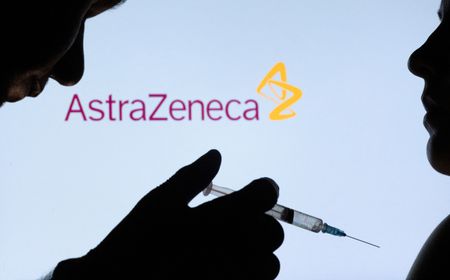
By Natalie Grover and Maggie Fick
LONDON (Reuters) – AstraZeneca on Thursday said it was poised to grow in 2023 and beyond, banking on its burgeoning line-up of cancer, metabolic and rare disease drugs to pick up the pace from dwindling COVID product sales.
Its shares rose as much as 5% to be the second-best performer in London’s blue-chip FTSE 100 index, on track for their best day in a year.
CEO Pascal Soriot said the firm was on a path to deliver at least 15 new medicines this decade and said it expects to kick off at least thirty new late-stage clinical trials in 2023.
The company also predicted a return to growth in China, one of its key markets, after reporting a second consecutive quarter of growth even as drug prices there remain under pressure.
“We move into 2023 very much on track to deliver our industry-leading growth ambitions for 2025, but also beyond until 2030,” Soriot told a news briefing.
Soriot, who took the reigns in 2012, has reversed the fortunes of the Anglo-Swedish drugmaker after it was hit by a string of patent losses and a spate of clinical trial failures.
But like many other industries and its own peers, AstraZeneca has grappled with higher costs linked to the war in Ukraine and the lingering effects of the pandemic in 2022.
With AstraZeneca’s extensive pipeline and existing broad portfolio of drugs – which incur ever growing R&D and selling costs – analysts and investors are particularly focused on the company’s profit margins.
Operating profit margins have risen from around 27% in 2021 to 30% last year and the plan is to continue to steadily improve them, CFO Aradhana Sarin said.
On Thursday, AstraZeneca forecast core operating expenses would increase by a low-to-mid single-digit percentage in 2023.
Given the concerns around margins going into results, we think this result/guide is good,” Barclays analyst Emily Field said.
Adjusted earnings per share in 2023 are expected to grow by a “high single digit to low double-digit percentage”, and revenue to increase by a “low-to-mid single-digit percentage”, at constant currency rates.
The company’s pipeline has got multiple candidates with an earning potential of $1 billion a year – if it can convert those into approved drugs then it can maintain a sector-leading pace of growth for some years to come, said Steve Clayton, fund manager for Hargreaves Lansdown, which holds AstraZeneca stock.
“But pipelines have been known to leak, so it is very much AstraZeneca’s case to prove,” he added.
FOURTH QUARTER
The drugmaker reported better-than-expected fourth-quarter profit, though revenue was just shy of company-compiled analyst estimates, hurt by a decline in sales of its COVID vaccine and slightly lower-than-expected sales of certain key medicines.
Drug prices in China remain under pressure, and before the country’s recent abandonment of its zero-COVID policy, fewer patients were being diagnosed and seeking care.
Sales started to pick up in the second half of 2022 and in the fourth quarter grew by 3% at constant currency rates.
AstraZeneca shares have outperformed rivals in recent years, gaining 41% since January 2020 due to its success in oncology and latterly in rare disease drug sales.
Its shares also rallied during the first few years of the pandemic after it developed a COVID vaccine with Oxford University.
Sales have waned though as shots made by Pfizer and Moderna have come to dominate the market.
AstraZeneca has outperformed rivals https://fingfx.thomsonreuters.com/gfx/mkt/myvmokqjovr/AZ.PNG
CEO Soriot told a media briefing that he is not planning to step down as CEO anytime soon, though there are “several potential successors” the board has in mind.
(Reporting by Natalie Grover and Maggie Fick; editing by Josephine Mason and Elaine Hardcastle)








